TRUE CRIME FROM WHARNCLIFFE
Foul Deeds and Suspicious Deaths Series
Barking, Dagenham & Chadwell Heath | Hull |
Barnsley | Jersey |
Bath | Leeds |
Bedford | Leicester |
Birmingham | Lewisham and Deptford |
More Foul Deeds Birmingham | Liverpool |
Black Country | Londons East End |
Blackburn and Hyndburn | Londons West End |
Bolton | Manchester |
Bradford | Mansfield |
Brighton | More Foul Deeds Wakefield |
Bristol | Newcastle |
Cambridge | Newport |
Carlisle | Norfolk |
Chesterfield | Northampton |
Cumbria | Nottingham |
More Foul Deeds Chesterfield | Oxfordshire |
Colchester | Pontefract and Castleford |
Coventry | Portsmouth |
Croydon | Rotherham |
Derby | Scunthorpe |
Durham | Shrewsbury |
Ealing | Southend-on-Sea |
Fens | Southport |
Folkstone and Dover | Staffordshire and the Potteries |
Grimsby | Stratford and South Warwickshire |
Guernsey | Tees |
Guildford | Warwickshire |
Halifax | Wigan |
Hampstead, Holborn and St Pancras | York |
Huddersfield |
OTHER TRUE CRIME BOOKS FROM WHARNCLIFFE
| A-Z of London Murders | Norwich Murders |
| A-Z of Yorkshire Murders | Strangeways Hanged |
| Black Barnsley | Unsolved Murders in Victorian & |
| Brighton Crime and Vice 1800-2000 | Edwardian London |
| Durham Executions | Unsolved Norfolk Murders |
| Essex Murders | Unsolved Yorkshire Murders |
| Executions & Hangings in Newcastle and Morpeth | Warwickshires Murderous Women Yorkshire Hangmen |
| Norfolk Mayhem and Murder | Yorkshires Murderous Women |
Please contact us via any of the methods below for more information or a catalogue
WHARNCLIFFE BOOKS
47 Church Street, Barnsley, South Yorkshire, S70 2AS
Tel: 01226 734555 734222 Fax: 01226 734438
email:
website: www.wharncliffebooks.co.uk

First published in Great Britain in 2009 by
Wharncliffe Local History
an imprint of
Pen & Sword Books Ltd
47 Church Street
Barnsley
South Yorkshire
S70 2AS
Copyright (c) Stephen Wade, 2009
ISBN 978 1 84563 082 9
Print ISBN: 978-1-84563-082-9
ePub ISBN: 9781844688401
The right of Stephen Wade to be identified as Author of the Work
has been asserted by him in accordance with the Copyright,
Designs and Patents Act 1988.
All rights reserved. No part of this book may be reproduced or
transmitted in any form or by any means, electronic or mechanical
including photocopying, recording or by any information storage and
retrieval system, without permission from the Publisher in writing.
Typeset in Plantin and Benguiat by
Phoenix Typesetting, Auldgirth, Dumfriesshire
Printed and bound in England by
CPI UK
Pen & Sword Books Ltd incorporates the Imprints of
Pen & Sword Aviation, Pen & Sword Maritime,
Pen & Sword Military, Wharncliffe Local History,
Pen and Sword Select, Pen and Sword Military Classics and Leo
Cooper.
For a complete list of Pen & Sword titles please contact
PEN & SWORD BOOKS LIMITED
47 Church Street
Barnsley
South Yorkshire
S70 2AS, England
E-mail:
Website: www.pen-and-sword.co.uk

Copy of George Watsons application to assist the famous hangman William Marwood. Lincolnshire Life
Introduction
Sir Thomas Browne, in his book,
Lydford Journey (1644) wrote:
Oft have I heard of Lydford law,
How in the morn they hang and draw
And sit in judgement after.
 rowne was writing because he had heard of a judge of the Stannery at Lydford in Devon: a man who it was said hanged a fellow at midday and then conducted the trial. British history teaches us many things about the moral and legal codes which have created the spirit of the nation, and many of these formative habits and attitudes are anything but pleasant. We have always been a nation fond of exercising judicial killings. In February 2008, the Sun would have us believe that little has changed in this respect; the newspaper reported that 99% of its readers wanted the return of the hanging judge and the scaffold.
rowne was writing because he had heard of a judge of the Stannery at Lydford in Devon: a man who it was said hanged a fellow at midday and then conducted the trial. British history teaches us many things about the moral and legal codes which have created the spirit of the nation, and many of these formative habits and attitudes are anything but pleasant. We have always been a nation fond of exercising judicial killings. In February 2008, the Sun would have us believe that little has changed in this respect; the newspaper reported that 99% of its readers wanted the return of the hanging judge and the scaffold.
The feature reported that several famous people wanted the return of hanging, including Anne Widdecombe and David Davis. But interestingly, Sara Payne mum of murdered schoolgirl Sarah, nine, is against the death penalty.. the paper stated. The tone of the entire feature was one that has been repeated thousands of times in the media, summed up by the words: Almost 100,000 Sun readers unite today to call for the return of the death penalty.
What is not so often discussed is the notion of exactly who would supervise and carry out the hanging. The public hangman was the target of hatred, derision and violence through the centuries in which Britain hanged its felons; he was also often made into a celebrity and was of course the subject of morbid fascination. Hangmen feature just as prominently in the exhibits at Madame Tussauds Chamber of Horrors as villains. Even as long ago as 1601, they have been vilified, even by the men they hanged (in spite of being given money to beg that the death be quick). The Earl of Essex, executed in that year by the London hangman, Derrick, penned a ballad upon his life, and he wrote:
Derrick! Thou knowest, at stately Calais I saved
Thy life, lost for a rape there done,
Which thou thyself can testify
Thine own hand three and twenty hung...
The first hangmen were, on the manors and in the towns, paid by both the civil and the religious power-bases, because courts proliferated and several categories of people in high society had the prerogative of hanging culprits in their domain. They were usually rogues themselves, as was the case with a London hangman observed by a diarist called Machyn in 1556, who noted that The 2nd day of July was rode into a cart five unto Tyburn [the hanging site near todays Marble Arch]. One was the hangman with the stump-leg - for theft. The which he had hanged many a man and quartered many, and had many a noble man and other...
Of course, since capital punishment was abolished in Britain in 1964, we have become acutely aware of the sick and revolting adverse views of the act of hanging: notably the death of a person later proved innocent of the capital offence. Such was the recent case of Alfred Moore, a Huddersfield man who was hanged in 1951 for the murder of two police officers. The
Next page
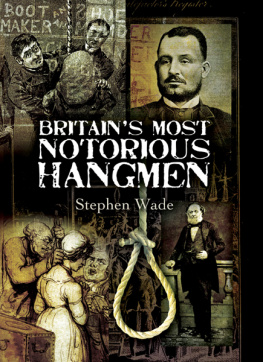

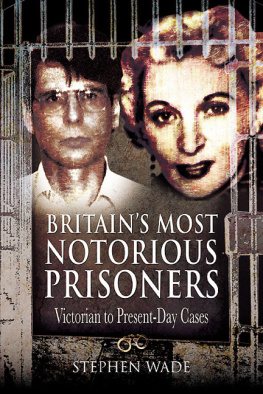
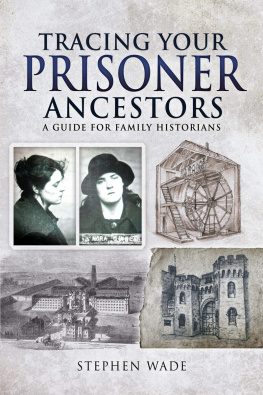
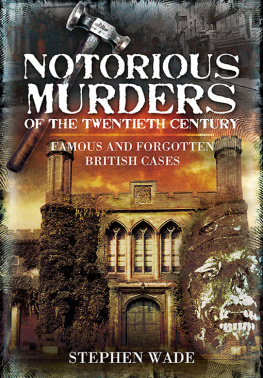
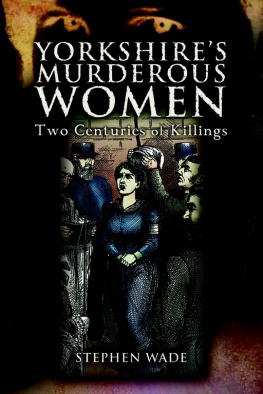
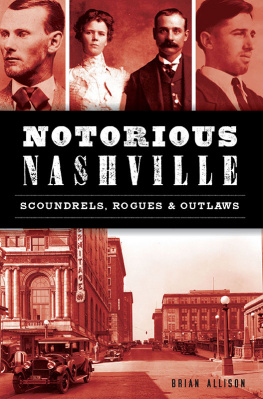
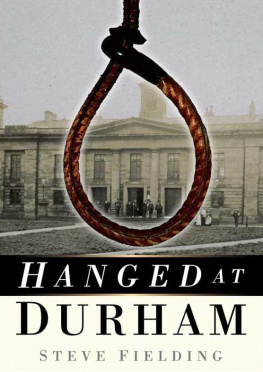
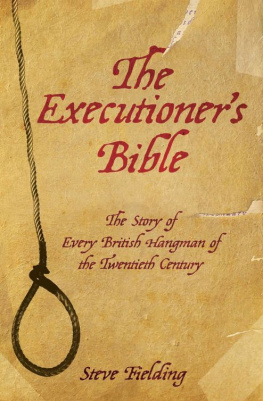


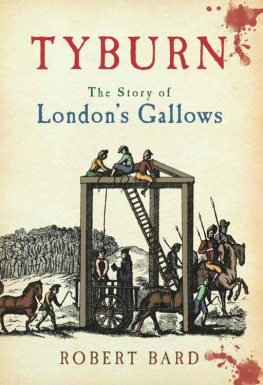

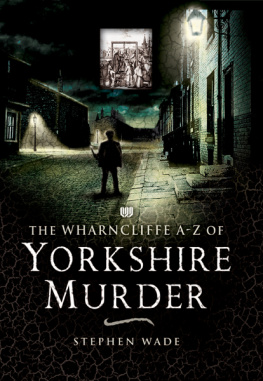
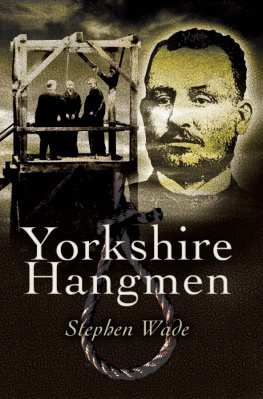


 rowne was writing because he had heard of a judge of the Stannery at Lydford in Devon: a man who it was said hanged a fellow at midday and then conducted the trial. British history teaches us many things about the moral and legal codes which have created the spirit of the nation, and many of these formative habits and attitudes are anything but pleasant. We have always been a nation fond of exercising judicial killings. In February 2008, the Sun would have us believe that little has changed in this respect; the newspaper reported that 99% of its readers wanted the return of the hanging judge and the scaffold.
rowne was writing because he had heard of a judge of the Stannery at Lydford in Devon: a man who it was said hanged a fellow at midday and then conducted the trial. British history teaches us many things about the moral and legal codes which have created the spirit of the nation, and many of these formative habits and attitudes are anything but pleasant. We have always been a nation fond of exercising judicial killings. In February 2008, the Sun would have us believe that little has changed in this respect; the newspaper reported that 99% of its readers wanted the return of the hanging judge and the scaffold.